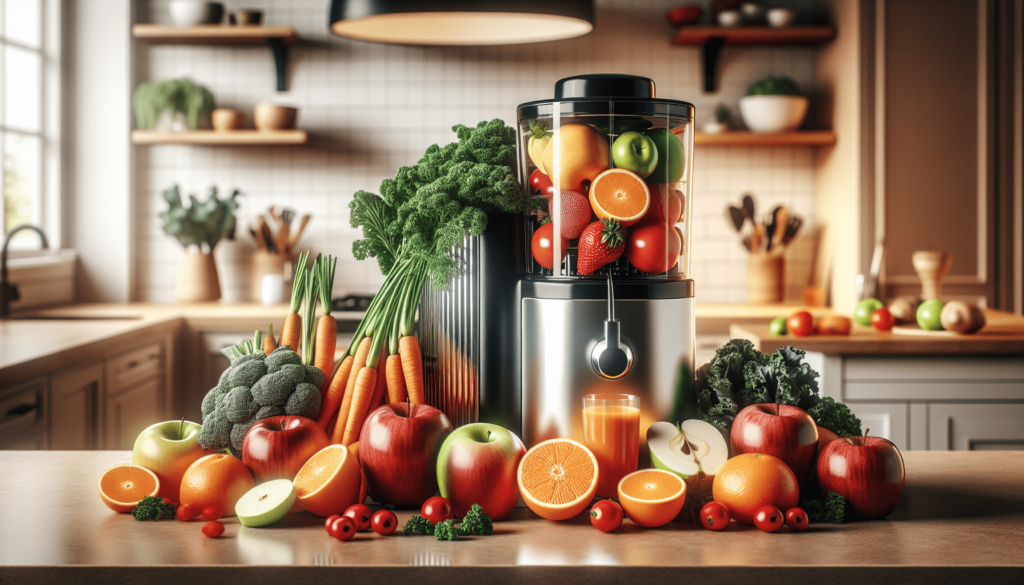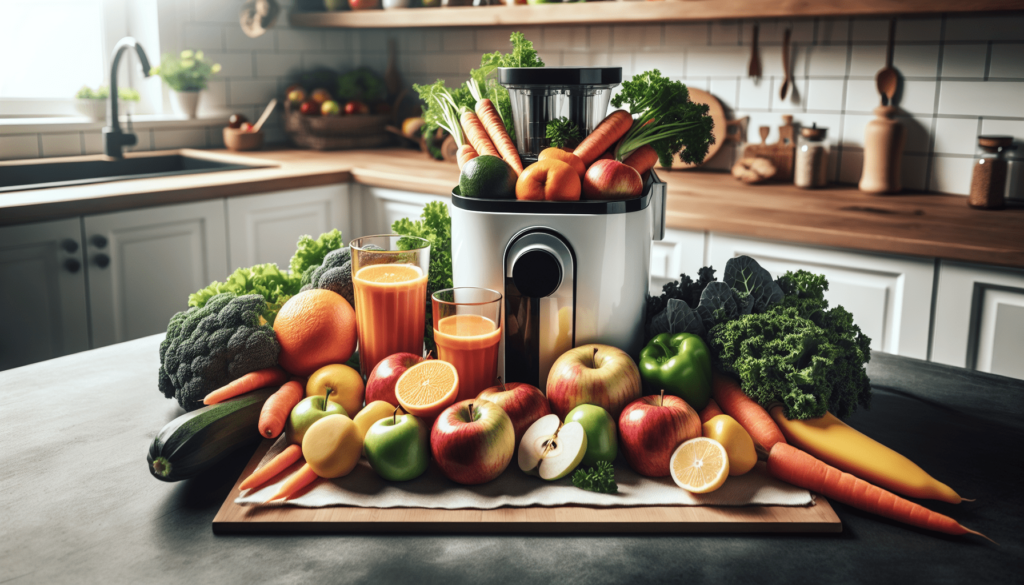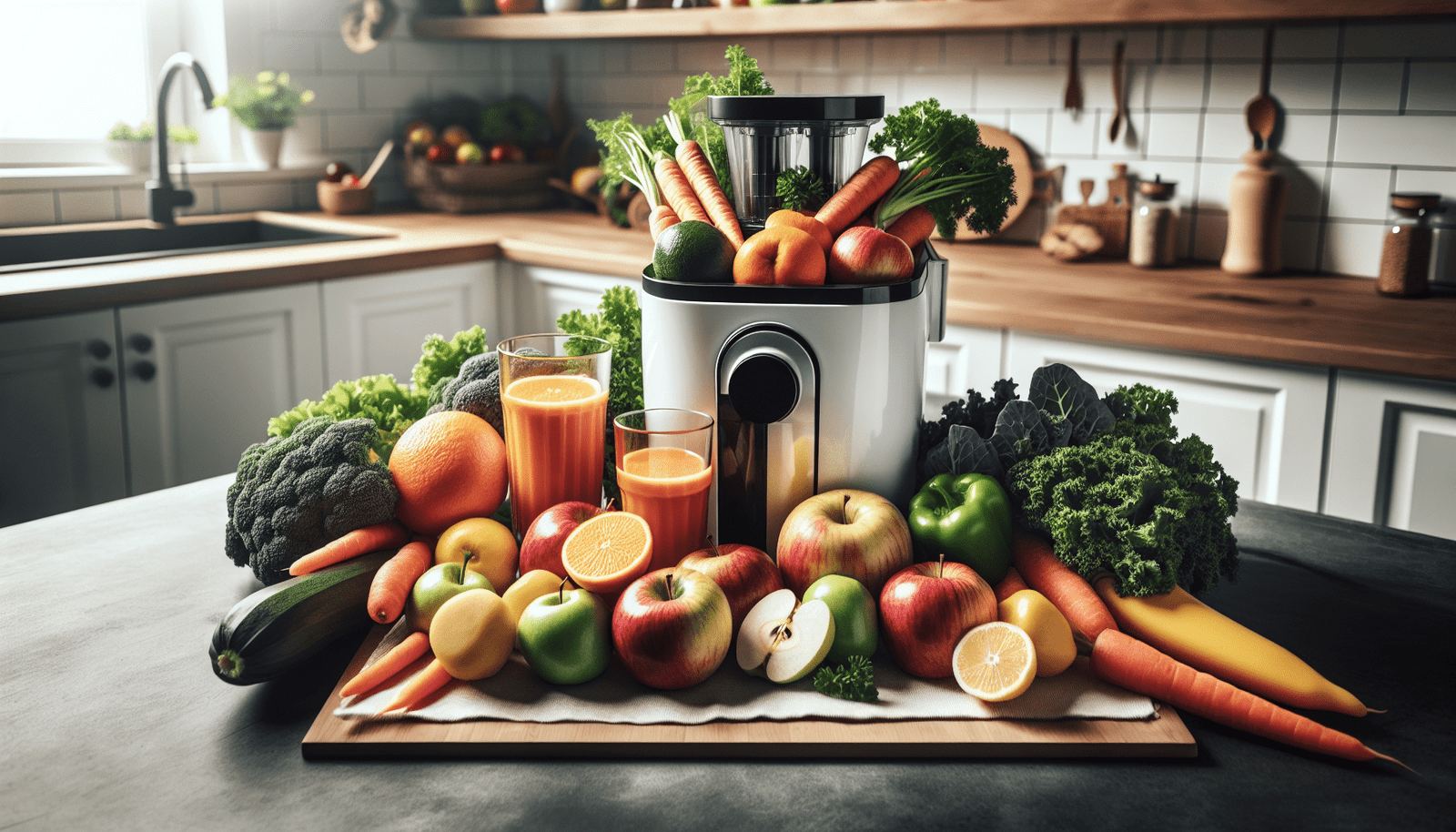
Juicing For Health: What You Need To Know
Juicing is a fantastic way to boost your intake of essential vitamins and minerals. If you’re new to juicing or looking to improve your juicing routine, you’ve come to the right place! We’re here to guide you through the ins and outs of juicing for health.
Benefits of Juicing
Juicing is an excellent way to increase your fruit and vegetable intake in a convenient and tasty manner. It provides a concentrated source of essential nutrients, such as vitamins, minerals, and antioxidants. By consuming freshly-made fruit and vegetable juices, you can easily meet your daily recommended servings and support your overall health and well-being.
Types of Juicers
There are two main types of juicers: centrifugal juicers and masticating juicers. Centrifugal juicers are typically more affordable and work by grinding produce with a rapidly spinning blade. On the other hand, masticating juicers operate at a slower speed, crushing and pressing the produce to extract juice. While masticating juicers are generally more efficient at extracting juice and preserving nutrients, they tend to be pricier.
Choosing the Right Ingredients
When it comes to juicing, it’s essential to choose the right ingredients to maximize the health benefits. Opt for a variety of fruits and vegetables in different colors to ensure a diverse nutrient profile. Green leafy vegetables, such as kale and spinach, are excellent choices due to their high nutrient content. Additionally, incorporating citrus fruits like oranges and lemons can add a refreshing flavor to your juices.
Balancing Flavors
Balancing flavors is key to creating delicious and enjoyable juices. To avoid overpowering bitterness, mix in sweeter fruits like apples, berries, or pineapples. Conversely, adding a hint of citrus can enhance the overall taste and bring a bright, zesty flavor to your juice. Experiment with different combinations until you find the perfect balance to suit your palate.
Preparing Your Produce
Before juicing, it’s crucial to properly prepare your produce to ensure a smooth juicing process. Wash and rinse fruits and vegetables thoroughly to remove any dirt or pesticides. Remove any seeds, pits, or tough skins, as they can affect the taste and texture of the juice. Cut the produce into smaller pieces that can easily fit through the juicer’s chute, ensuring efficient juicing.
Understanding Fiber Content
One important aspect to consider when juicing is the fiber content in your juice. Juicing extracts the liquid part of the produce, leaving behind the fiber-rich pulp. While fiber is essential for digestion and overall gut health, juicing allows for quicker absorption of nutrients without the bulk of fiber. If you’re looking to increase your fiber intake, consider incorporating the pulp back into your juice or using it in other recipes.
Storing Fresh Juice
To maximize the nutritional benefits of your fresh juice, it’s best to consume it immediately after juicing. However, if you need to store juice for later consumption, be sure to transfer it to an airtight container and refrigerate it promptly. Fresh juice can typically last up to 24-48 hours in the refrigerator, depending on the ingredients used. Keep in mind that prolonged storage can lead to oxidation and nutrient loss, so it’s best to drink your juice as soon as possible.
Customizing Your Recipes
One of the best things about juicing is the ability to customize recipes to suit your taste preferences and health goals. Whether you’re looking to boost immunity, support digestion, or increase energy levels, there are endless combinations of fruits and vegetables to choose from. Experiment with different ingredients, spices, and superfoods to create unique and flavorful juices that cater to your specific needs.
Adding Superfoods and Supplements
Incorporating superfoods and supplements into your juices can enhance their nutritional value and provide additional health benefits. Superfoods like chia seeds, spirulina, and wheatgrass are rich in antioxidants, vitamins, and minerals that can support overall health. You can also add supplements like protein powder, collagen, or probiotics to further boost the nutritional content of your juices. Be mindful of the recommended dosages and consult with a healthcare professional if needed.
Juicing for Specific Health Goals
Whether you’re looking to lose weight, boost immunity, or improve your skin health, juicing can be a valuable tool to help you reach your health goals. Different fruits and vegetables possess unique properties that can target specific health concerns. For weight loss, opt for low-sugar, high-fiber ingredients like cucumbers, leafy greens, and citrus fruits. To enhance immunity, incorporate vitamin C-rich fruits such as oranges, strawberries, and bell peppers into your juices. Experiment with different combinations to find the best recipes that align with your health objectives.
Proper Hydration and Juicing
While juicing can be a great way to increase your nutrient intake, it’s important not to rely solely on juices for hydration. Water is still essential for maintaining proper hydration levels, supporting bodily functions, and promoting overall well-being. Make sure to drink an adequate amount of water throughout the day in addition to consuming fresh juices to stay properly hydrated. Juices can complement your hydration routine but should not replace water entirely.
Budget-Friendly Juicing Tips
Juicing can be a cost-effective way to improve your health and well-being if done thoughtfully. To save money on ingredients, consider purchasing produce in bulk or opting for seasonal fruits and vegetables. Look for discounts, sales, or farmer’s markets for fresh, affordable produce. You can also grow your herbs, fruits, and vegetables at home to reduce costs and ensure the quality and freshness of your ingredients. With a bit of planning and creativity, you can enjoy nutritious and delicious juices without breaking the bank.

Conclusion
Incorporating juicing into your daily routine can offer a myriad of health benefits and help you achieve your wellness goals. By choosing the right ingredients, balancing flavors, preparing produce properly, and customizing recipes to your liking, you can enjoy delicious and nutritious juices that support your overall health and well-being. Experiment with different fruits, vegetables, superfoods, and supplements to create unique and flavorful juices that cater to your specific needs. Remember to stay hydrated, consume fresh juice in moderation, and seek advice from healthcare professionals if needed. Juicing for health is a journey of exploration and discovery that can lead to a healthier and happier you. So, grab your juicer, unleash your creativity, and start juicing your way to a healthier lifestyle today!

